Learning Spanish isn’t solely about mastering grammar and vocabulary; ; it involves grasping the cultural nuances and expressions that bring the language to life. Slang words and phrases are an essential part of this journey, as they reflect the vibrancy, humor, and creativity of Spanish-speaking cultures. Below, we’ve compiled a list of over 100 Spanish slang terms from various countries to help you speak like a local and connect with native speakers on a deeper level.
Why Learn Spanish Slang?
- Cultural Connection: Slang reveals the personality of a region, offering insights into its humor, traditions, and daily life.
- Better Conversations: Using slang makes your conversations more natural and less formal.
- Understanding Locals: Native speakers often use slang in casual settings, so knowing these terms helps you keep up.
Spanish Slang Words by Region
1. General Spanish Slang
These terms are widely understood across many Spanish-speaking countries:
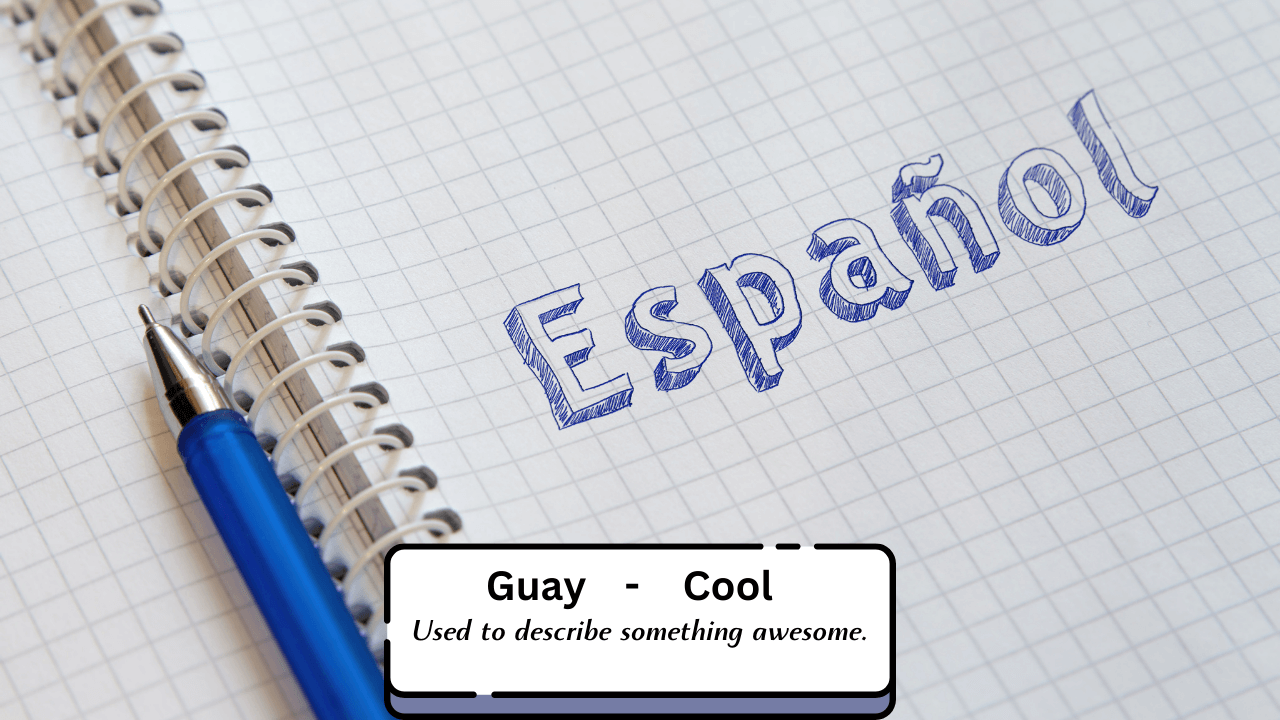
| Slang Word/Phrase | English Translation | Meaning/Usage |
|---|---|---|
| Guay | Cool | Used to describe something awesome. |
| Vale | Okay | Commonly used to agree or acknowledge something. |
| Tío/Tía | Dude/Girl | Refers to a friend or person casually. |
| Pasta | Money | Informal term for cash. |
| Flipar | To freak out | Expresses amazement or shock. |
Also Read – 110 American Slang Words And Phrases (Speak Like A Native)
2. Mexican Slang
Mexican Spanish is rich in colorful expressions:
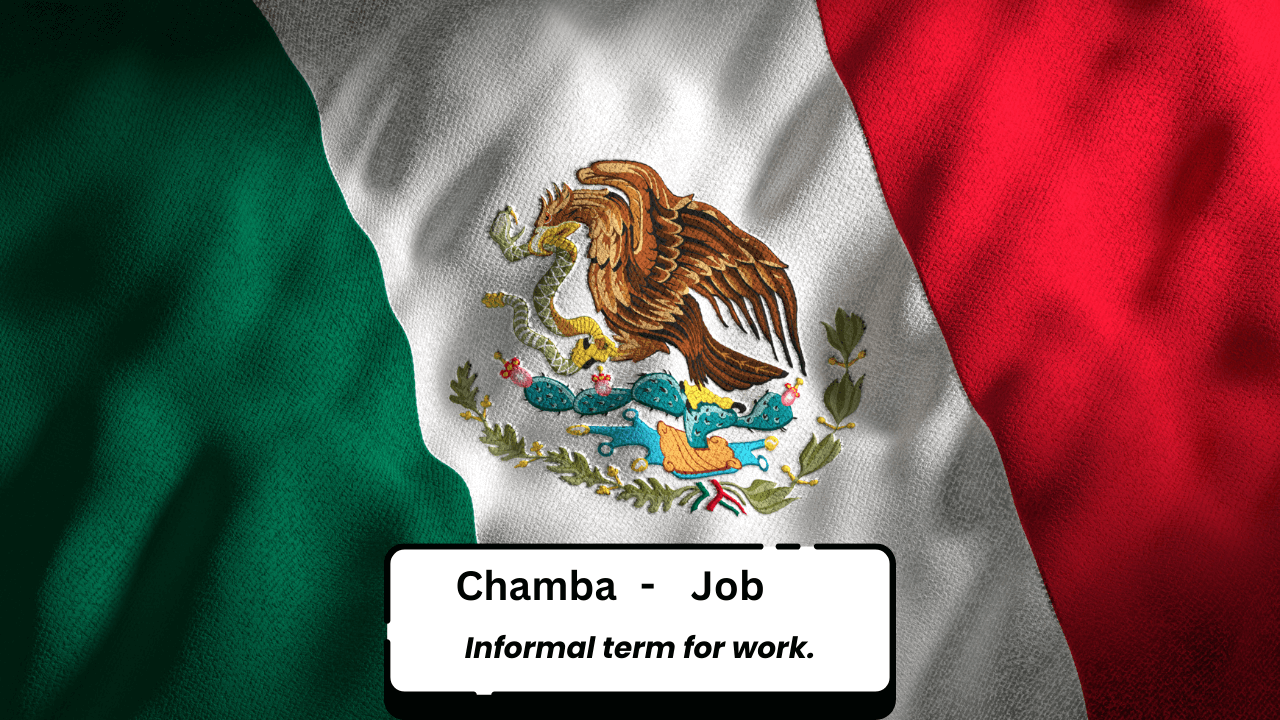
| Slang Word/Phrase | English Translation | Meaning/Usage |
|---|---|---|
| Chido | Cool | Used to describe something great. |
| Órale | Hurry up/Okay | Expresses agreement or urgency. |
| No manches | No way! | Used to express disbelief. |
| Güey (Wey) | Dude | A casual way to address someone. |
| Chamba | Job | Informal term for work. |
3. Colombian Slang
Colombian slang is playful and unique:
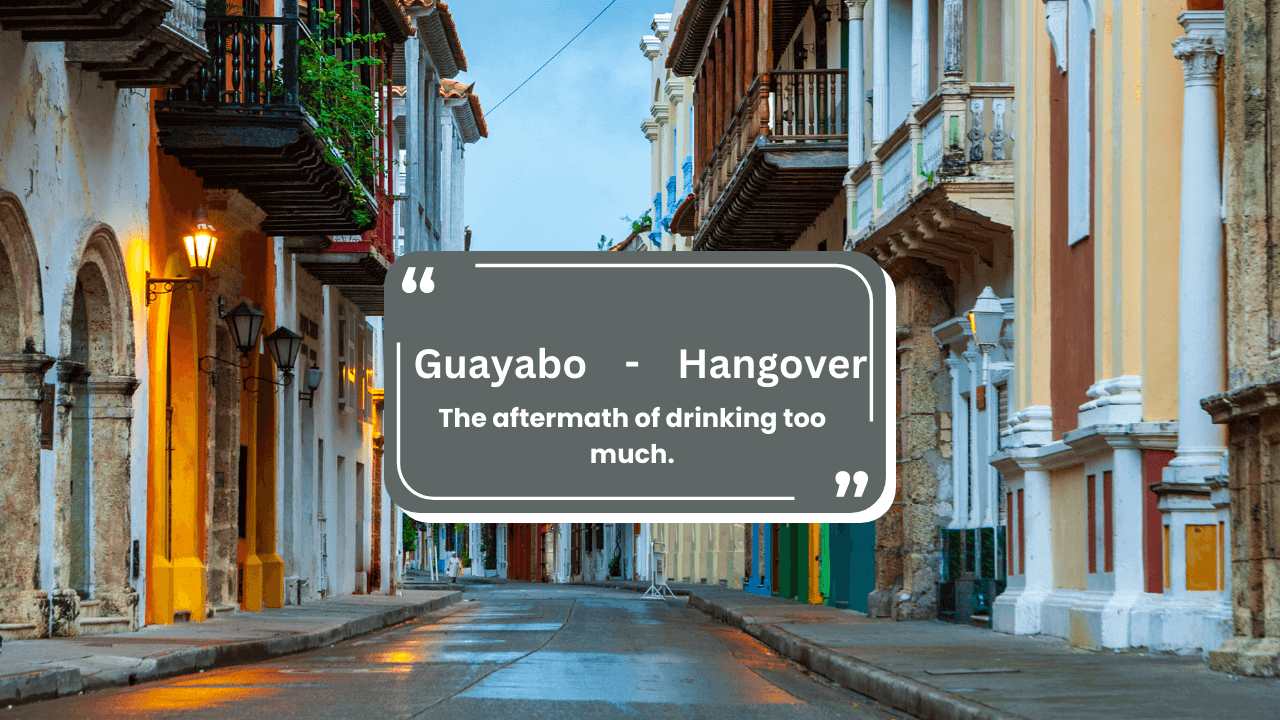
| Slang Word/Phrase | English Translation | Meaning/Usage |
|---|---|---|
| Parche | Group of friends | Refers to your social circle. |
| Rumbiar | To party | Describes going out to have fun. |
| Guayabo | Hangover | The aftermath of drinking too much. |
| Chévere | Cool | Used to describe something nice or enjoyable. |
Also Read – How to Say “I Love You” in French: 80 Romantic Phrases
4. Argentinian Slang
Argentinian Spanish, or lunfardo, has its own charm:

| Slang Word/Phrase | English Translation | Meaning/Usage |
|---|---|---|
| Che | Hey | Used to grab someone’s attention. |
| Boludo/Boluda | Idiot/Dude | Can be affectionate or insulting depending on tone. |
| Pibe/Piba | Guy/Girl | Refers to a young person casually. |
| Laburo | Work | Informal term for a job. |
Also Read – 111+ Hilarious English Tongue Twisters For Kids & Adults
5. Cuban Slang
Cuban slang reflects the island’s lively culture:
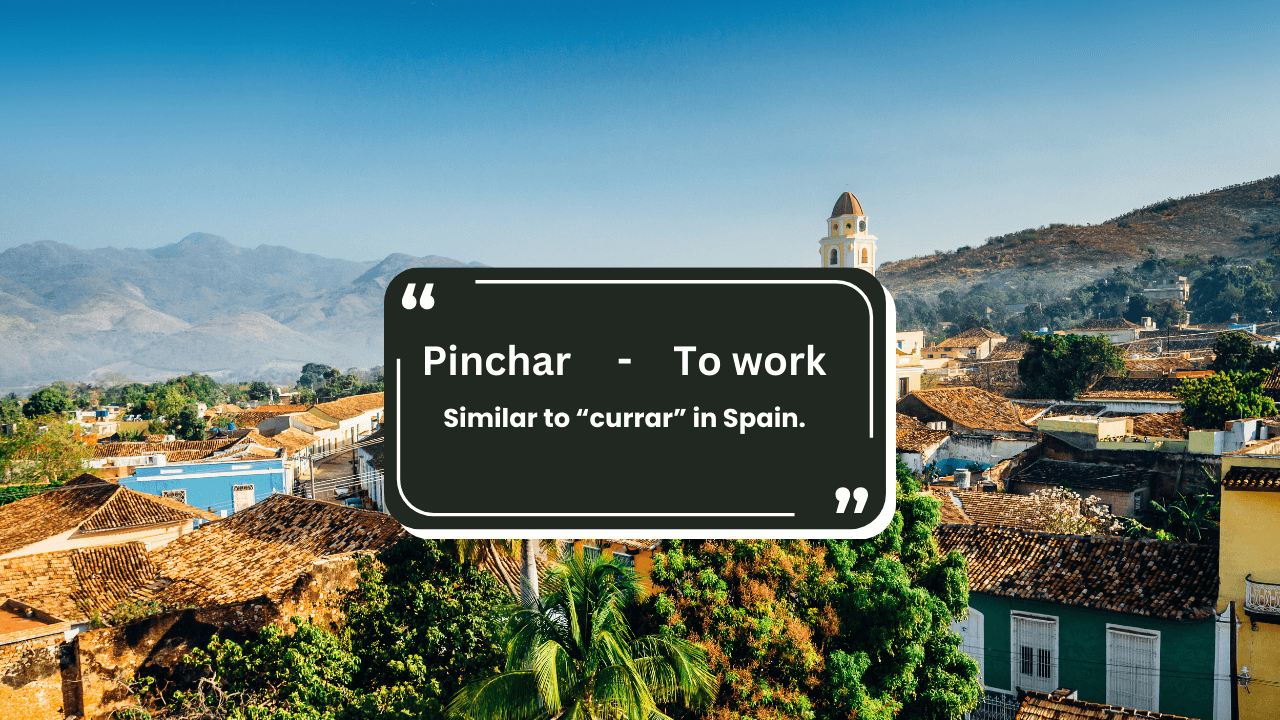
| Slang Word/Phrase | English Translation | Meaning/Usage |
|---|---|---|
| Asere | Bro/Dude | Casual way to address a friend. |
| Jama | Food | Informal term for a meal. |
| Pinchar | To work | Similar to “currar” in Spain. |
| Yuma | Foreigner | Often used for Americans or tourists. |
Also Read – How To Say “Good Morning” In Spanish (Beyond “Buenos Días”)
6. Spanish (Spain) Slang
Spain’s slang is diverse and widely used in everyday conversations:
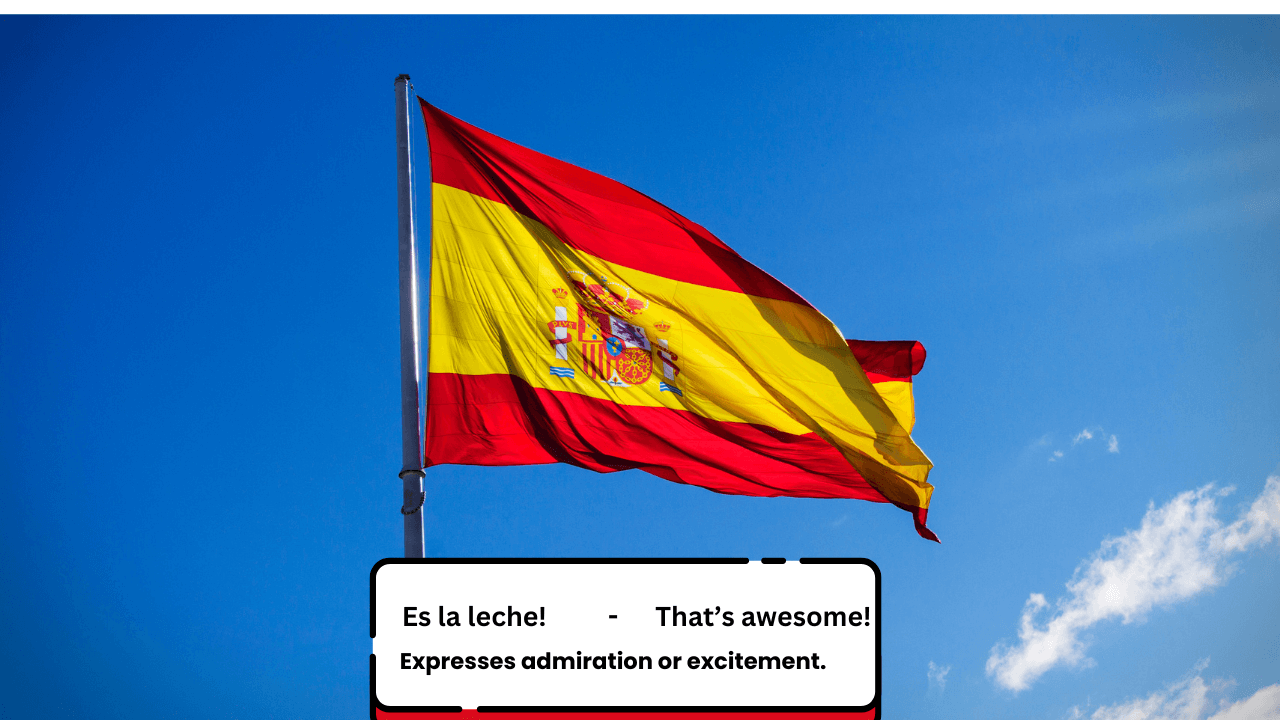
| Slang Word/Phrase | English Translation | Meaning/Usage |
|---|---|---|
| Majo/Maja | Nice/Friendly | Describes someone pleasant or kind. |
| Qué fuerte! | That’s crazy! | Used for shocking situations. |
| Es la leche! | That’s awesome! | Expresses admiration or excitement. |
| Chaval/Chavala | Kid | Informal term for a boy or girl. |
Also Read – Unique Ways To Say Thank You And You’re Welcome In English
Unique Expressions Across Countries
Some slang phrases are so creative that they deserve special mention:
- Hablar por los codos (Spain): To talk through your elbows—refers to someone who talks excessively.
- Estar como una cabra (Spain): To be like a goat—used for someone acting crazy.
- Ponerse las pilas (Latin America): Put on your batteries—means to get cracking or start working hard.
- Me importa un pimiento (Spain): I couldn’t care less—used when something doesn’t matter at all.
- Ser un crack (Spain): To be a genius—describes someone who excels at something.
Tips for Learning and Using Spanish Slang
- Context is Key: Many slang words have different meanings depending on the country or even region within a country.
- Listen Actively: Watch movies, listen to music, or follow social media influencers from different Spanish-speaking countries.
- Practice with Natives: Engage in conversations with native speakers to learn how these phrases are used naturally.
- Be Cautious with Offensive Terms: Some slang can be vulgar or offensive in certain contexts, so use them carefully.
- Keep Updating Your Vocabulary: Language evolves, and new slang emerges all the time.
Final Thoughts
Learning Spanish slang is like getting an insider’s pass to the language and culture. It helps you connect more naturally with native speakers, whether you’re traveling through Latin America, chatting with friends from Spain, or just diving deeper into the beauty of the language.
Start incorporating these terms into your daily practice, and soon enough, you’ll be speaking like a native! ¡Buena suerte!